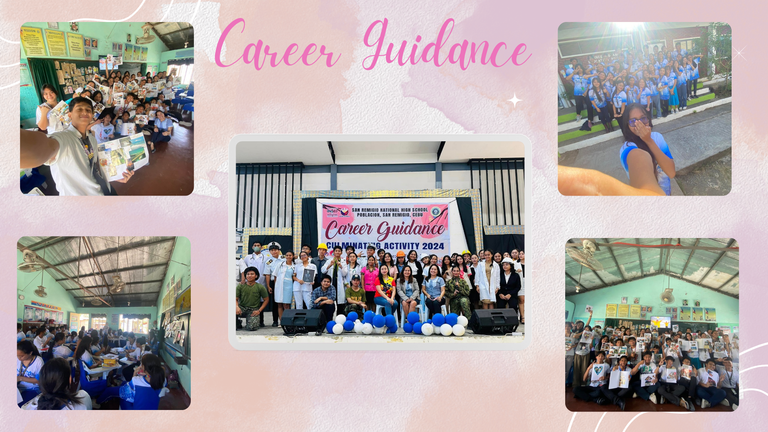
One of the major decisions you are ever going to make in your life has to do with choosing a career direction. You are a 10th-grade kid now; hence, whatever you decide now might very well affect your destiny. This manual is designed to help you expertly move through that labyrinthian journey by giving you informative assistance and counsel.
Know Yourself
To begin your career search, it will be useful if you know more about yourself. means discovering personal strengths, weaknesses, interests, and values. Your knowledge of yourself is a critical first step toward finding a suitable career that fits your personality.


Interests: What do you like to do? Do you like science experiments or maybe writing, possibly coding, or helping people? Your interests can give you major clues about careers that might be a good fit.
Strengths: What are you good at? Maybe you are brilliant with maths, languages, or interpersonal relations. If you work out what you have a flair for, this might help you to focus on careers where you are likely to succeed.
Values: Which of the following topics are most important in your work? Maybe aiding others, free time, high salary, or teamwork? Keeping in mind what is most important to you in your job will let you select emphases in careers that will help you in the long term.
Explore Career Options
Now that you have a more defined sense of self, it's time to explore some career options. This can be a fun stage of exploration.
Research: Tap into the internet, library, and career counseling office to find information about specific occupations. Websites like the Bureau of Labor Statistics and professional association Web sites provide descriptions of the occupation, required education, and Salary ranges.
Shadowing and Internships: Get direct job experience by shadowing people in areas of interest or acquiring internships. This will give a very real understanding of the actuality of different careers every day.
Interview Professionals: Informational interviews with people in the careers you are thinking of. Ask for their career path, the most difficult issues, and what they enjoy the most about their jobs.


Overcoming Challenges
Though meaningful career paths are varied and rarely straightforward, they often test one's mettle with their challenges and setbacks. Becoming resilient in the face of such challenges is very important.
Handling Uncertainty: It’s okay not to have everything figured out. Career paths can evolve, and it’s normal to change your mind. Stay flexible and open to new opportunities.
Dealing with Pressure: You might feel pressure from parents, peers, or society regarding your career choices. While it’s important to consider advice, ultimately, your career should align with your interests and values.
Financial Constraints: Higher education is rather expensive. Keep a lookout for scholarships, grants, and opportunities for part-time employment that can help fund your education.
Making Informed Decisions
Now that all the information is in hand, it becomes time to start making some decisions, which should include both short- and long-term goals and a plan for how they may be reached.
Goals: State what you would like to accomplish shortly—choices of appropriate high school courses, acquiring skills—and over the long haul: getting your degree or establishing your own business.
Plan Your Education: Your education pathway has an enormous stake in your attaining your set career goals. Reflect on learning and educational requirements required in the main career areas under interest, or bridge/align high school and post-secondary education. Think of:
- High School Courses: Take career-related courses. If you want to become an engineer, take higher-level math and science courses.
Extracurriculars: Participate in clubs, sports, and service activities that focus on a specific career area. These extras will be sharpening your skills and all prove very useful during the college application process.
Post-Secondary Education: Research some colleges, universities, and vocational/trade schools offering your programs of interest. Consider location, tuition, and quality of campus facilities, including internships offered by the institution.
- Skill Development: Apart from bookish knowledge, develop some very important skills like communication, teamwork, solving problems, and time management. All these skills are highly regarded in any career.
Building a Support System
You've got that entire cast of support characters around you who are going to go a long way to making your journey to your dream career a success.
Family and Friends: Share your dreams with your family and friends. They will be there to assist, encourage, and provide you with advice.
Mentors: A mentor is a person who imparts wisdom from their experience and guides you through yours. Examples of mentors include teachers, school counselors, or professionals working in areas of interest for you.
3.Networking: Develop contacts within your 'desired' industry. Career fairs, professional societies, and business networking sites such as LinkedIn can serve this purpose.
Embracing Lifelong Learning
The world, more than ever, needs lifelong learning today. Never stop being curious, open to learning new things, and seeking out new experiences.
Staying current: Staying current with industry trends and developments is accomplished by reading industry journals or periodicals, following other relevant sources of professional literature, and attending seminars, and courses taken after a degree is obtained.
Further Education: Obtaining advanced degrees/certifications as required. This can enhance your versatility/relevance to potential employers, which then opens up new opportunities in possible job searches or advancement in job placement.
Revision and Update of Skills: How often you are supposed to reassess and redevelop your skills, update them, earning possibly new qualifications in new technologies or soft skill areas, could be an administrative requirement.





Conclusion
While you are certainly going to encounter some intimidating decisions regarding your career path in grade 10, the fact remains that making the right choice is quite possible when you take time to do self-assessment, exploration, and planning. After all, this is a journey, and it is quite okay to take time over it, make adjustments, and seek support along the way. Embrace the process and just stay proactive—just have faith that with dedication and hard work, your passion and your goals will yield to the career for you.
I hope the career guidance will help you decide on what career path you will take in the future Ma'am @iviex
Congratulations @iviex! You have completed the following achievement on the Hive blockchain And have been rewarded with New badge(s)
Your next target is to reach 2250 upvotes.
You can view your badges on your board and compare yourself to others in the Ranking
If you no longer want to receive notifications, reply to this comment with the word
STOPVery well said. Jobs have certainly evolved over time, and I think not all people know about it. It's really important to do some research. But then, sometimes, whatever career someone chooses, it will still depend on many aspects like financial capability, expectations of the family, etc.
You can also consult your school counselors for guidance. They can provide you additional tips and information regarding your career path. They can also administer psychological tests to determine what career paths are aligned to your personality and the like. All the best to your endeavors 🙏